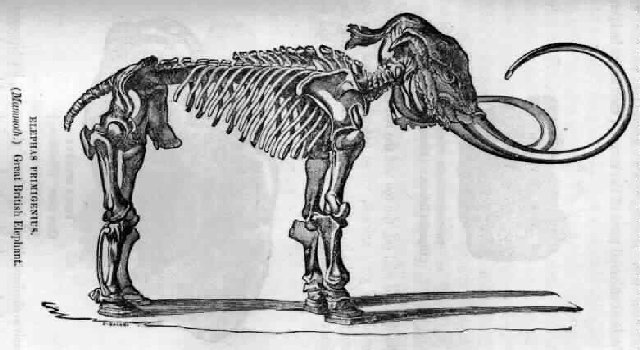Hugh Miller
Today, a 19th-century geologist struggles with the creation of the earth. The University of Houston's College of Engineering presents this series about the machines that make our civilization run, and the people whose ingenuity created them.
December 23, 1856, three years before Darwin published his Origin of Species: That night, 54-year-old Hugh Miller, a well-known, highly-regarded Scottish geologist, went to his study with a blinding pain in his head. He wrote an agonized letter:
Dearest Lydia, -- My brain burns ... and a fearful dream rises upon me. I cannot bear the horrible thought. God ... have mercy upon me. Dearest Lydia, dear children, farewell. My brain burns as the recollection burns. My dear, dear wife, farewell.
Then Miller directed a bullet into his chest. It cut his pulmonary artery at the root and killed him instantly.
That same day, he'd finished correcting proofs for his last book, The Testimony of the Rocks. I have an American edition of that book -- a lovely old work, thoughtful, well-illustrated, and ponderous. It has paragraphs that run to five pages in length.
Miller's life lay between two worlds. Raised in the 19th-century fundamentalism of the Scottish Presbyterian church, he took up geology just when the old biblical chronology of creation seemed to be caving in. Throughout his life he struggled with the account in Genesis. His last book was his summa theologica.
He made six epochs of the six days of biblical creation. He detailed each one with his vast knowledge of geologic and fossil formations. It was conservative stuff by our lights. No hint of evolution. No question about the biblical flood. Still, he was seen as dangerously liberal for stretching 24-hour days into geologic epochs.
He studied the size of Noah's ark and decided it wasn't big enough to hold all the species. Therefore, the flood could not have been world-wide. It was a ceremony of compromise. And he finished by saying, "I know not of a single truth that militates against the minutest [details of Genesis]."
Despite that, he also says something that shows profound good sense. He says of people who "have sought to deduce from [the Bible] what it was not intended to teach -- the truths of physical science, -- they have fallen into extravagant error."
But this night before Christmas Eve, 1856, Hugh Miller suffered another attack of some terrible mental illness. He suffered soul-curdling nightmares, and he imagined his brain was being eaten away. So he wrote that wrenching note and shot himself.
Three years later, Darwin published his theory of evolution, and the science-religion wars of the late 19th century went into high gear. Miller was brushed aside. Also brushed aside was his perfectly sane reminder that the Bible was never meant to be -- a science textbook.
I'm John Lienhard at the University of Houston, where we're interested in the way inventive minds work.
(Theme music)
Miller, H., The Testimony of the Rocks. Boston: Gould and Lincoln, 1867 (first edition, 1857).
See also various encyclopaedia articles on Hugh Miller. The Testimony of the Rocks was published over and over until 1897. A modern edition came out in 1980. My old 1867 edition was yet another treasure yielded up by Detering Bookstore in Houston.

Quoted in a memorial statement to Hugh Miller
From The Testimony of the Rocks, 1867

Miller's Representation of an English Mammoth Skeleton
From The Testimony of the Rocks, 1867